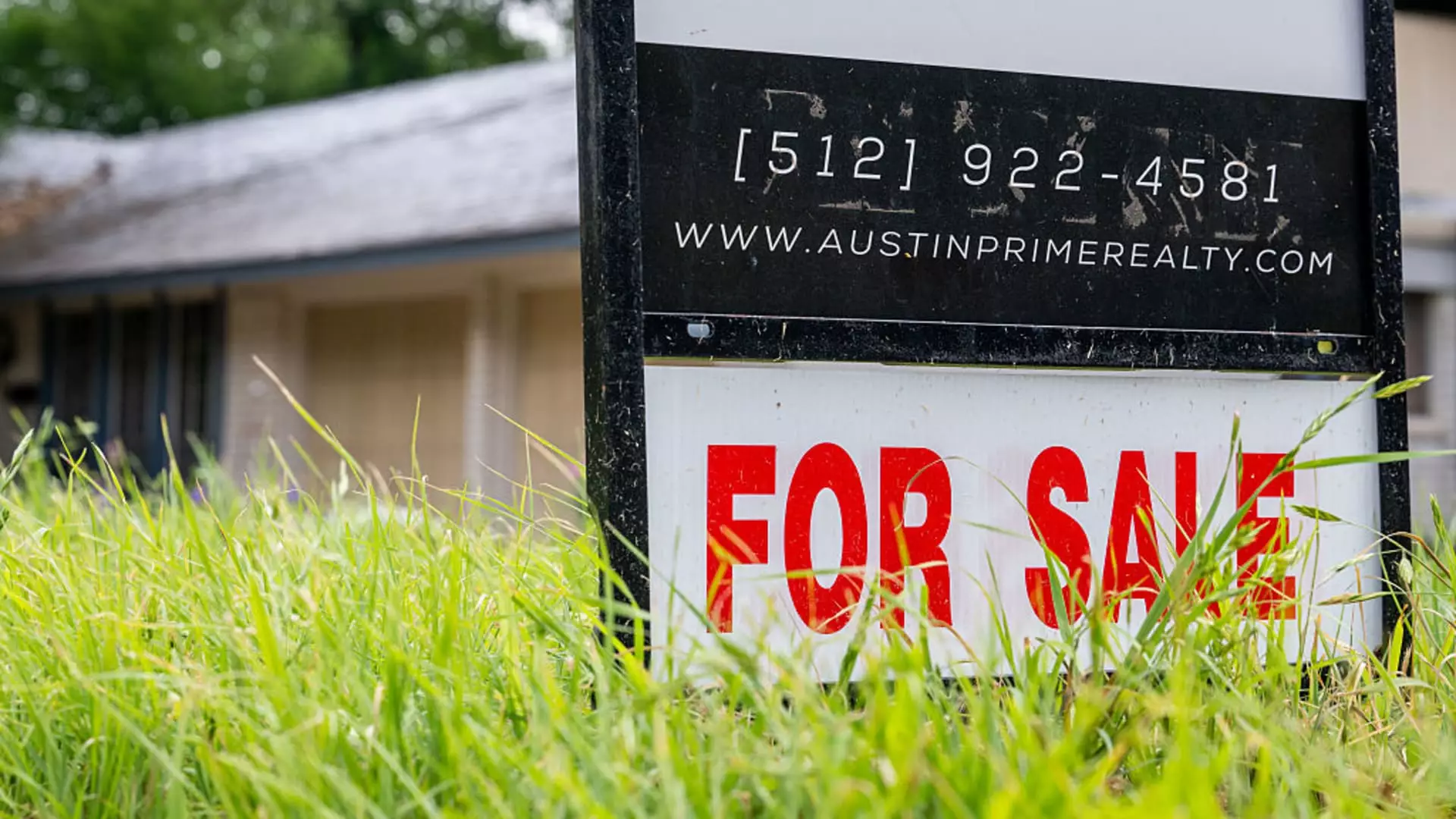Despite the mortgage rates dancing around the same levels last week, the symptoms of anxiety in the housing market could not be ignored. Applications for new home purchases plummeted by 4% from the previous week, illustrating a worrying trend. According to the Mortgage Bankers Association’s analysis, the volume of mortgage applications remained a mere 3% higher than this period last year—an alarming outcome given that interest rates last year oversaw notable fluctuations. The stagnation in mortgage rates, with the average for a fixed-rate 30-year mortgage hanging at a meager 6.89%, does not paint a reassuring picture for potential homebuyers.
First-Time Homebuyers and FHA Applications: A Mixed Bag
Interestingly, the narrative around first-time homebuyers diverges slightly. While mortgage application activity has weakened, those seeking Federal Housing Administration (FHA) loans seem to fare better, facing only a minor decline in applications. This phenomenon speaks volumes about the landscape for new buyers. Many first-time homebuyers are still grappling with the realities of rising costs amid economic uncertainty, ultimately resulting in a more cautious approach to homebuying. While a glimmer of hope exists with slowly increasing housing inventory, the overall hesitance makes one wonder: are prospective homebuyers simply waiting for better conditions or have economic nerves sealed their fate?
The Ever-Present Ghost of Economic Uncertainty
Analysts have often attributed these downward trends to the broader economic shadows lurking over the housing market. With labor market indicators providing a mixed bag of signs, it’s no surprise that buyers are pulling back. Joel Kan, the MBA’s vice president and deputy chief economist, highlighted the slowest pace of mortgage application activity since February. The economic landscape feels precarious and riddled with doubts, mirroring concerns about inflation, potential recessions, and job stability. Home buying isn’t just a transaction; it’s an emotional and financial commitment that hinges deeply on consumers’ confidence in the economy.
The Refinance Dilemmas
Turning to the refinancing segment of the market shows equally worrisome patterns. Refinance applications dropped by 4%, even though overall numbers compared to last year are significantly higher, culminating in a 42% increase. Yet, this numbers game does little to ease unease as borrowers withhold decisions, anxiously waiting for mortgage rates to tumble further. The average size of loans for refinancing has also suppressed to just under $290,000, the lowest point in three months, illustrating how a seemingly stable market persists on the brink of caution and second-guessing.
The current trajectory of the housing market is not merely a number game; it resonates with the emotional weight of countless individuals and families contemplating homeownership or refinancing. The picture painted is one of palpable risk aversion amidst uncertain economic tides. It raises crucial questions: how long will this trepidation persist, and will it lead to enduring changes in our approach to home financing? The answers are complex, but they undoubtedly require urgent reflection and deeper understanding in a volatile climate where trust in the economy often feels as elusive as the ideal home.


Leave a Reply